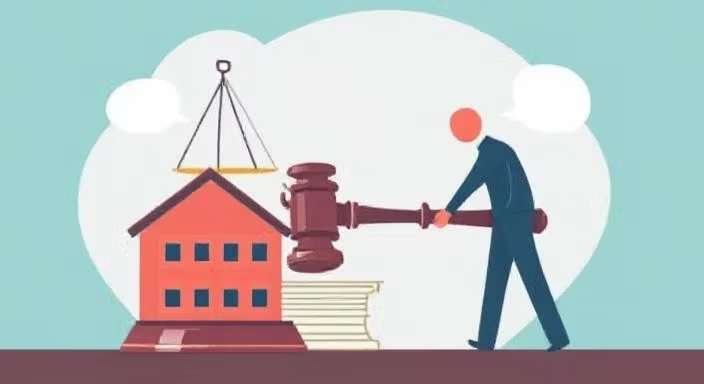Introduction
In India, loan defaulters often encounter harassment, legal threats, and financial stress due to non-payment of dues. It is important to note that defaulting on a loan is not a criminal offense, and borrowers possess legal rights and remedies to safeguard themselves from unethical recovery practices. This guide outlines the legal protections available to loan defaulters, remedies for financial distress, relevant RBI guidelines, and significant Supreme Court and High Court judgments that have shaped borrower rights.
1. Understanding Loan Default & Its Consequences
(i) What is Loan Default?
A borrower is classified as a defaulter when they fail to repay Equated Monthly Installments (EMIs) or miss multiple payments over a specified period, resulting in:
- A negative impact on credit scores (CIBIL score drop).
- Classification of the loan as a Non-Performing Asset (NPA) after 90 days of non-payment.
- Legal actions by the lender under RBI-approved recovery processes.
(ii) What Happens When a Borrower Defaults?
- First 30 Days:
- Borrowers receive reminder calls and emails.
- Soft recovery measures are employed.
- 60-90 Days:
- Lenders issue a formal legal notice in accordance with RBI rules.
- The loan is reported as delinquent to credit bureaus.
- 90+ Days:
- The loan is classified as an NPA.
- Lenders may initiate SARFAESI Act proceedings for secured loans.
2. Legal Rights of Loan Defaulters in India
Loan defaulters are entitled to specific legal protections under Indian laws, including the RBI guidelines, Consumer Protection Act, and the Bhartiya Nyay Sanhita (BNS), 2023.
(i) Rights Under Bhartiya Nyay Sanhita (BNS), 2023
- Section 349 BNS – Protection Against Criminal Intimidation
- Banks and recovery agents cannot threaten or intimidate borrowers.
- Section 351 BNS – Protection Against Verbal Abuse
- Harassment using abusive language is punishable by law.
- Section 503 BNS – Protection Against Wrongful Confinement
- Legal action can be taken if a borrower is illegally detained or harassed.
(ii) Protections Under the Consumer Protection Act, 2019
- Banks are prohibited from engaging in unfair trade practices during loan recovery.
- Defaulters can file complaints in Consumer Courts for unethical treatment.
(iii) RBI Guidelines Protecting Borrowers from Harassment
- Fair Practices Code for Lenders (RBI Circular DBOD.No.Leg.BC.104/09.07.007/2002-03)
- Lenders must adhere to ethical recovery processes.
- Loan Restructuring Guidelines (RBI Circular RBI/2023-24/82)
- Borrowers facing financial difficulties can request loan restructuring.
- No Harassment by Recovery Agents (RBI Circular RBI/2024-25/41)
- Recovery agents are prohibited from using threats or coercion for loan collection.
- Legal Notice Requirement Before Seizing Assets (RBI Circular RBI/2019-20/201)
- Banks must provide written notice prior to repossessing secured assets.
3. Legal Remedies for Loan Defaulters
Borrowers who default on loans can pursue the following legal avenues to protect themselves:
(i) Apply for Loan Restructuring
- Request lower EMIs, extended tenure, or interest waivers.
- RBI permits one-time restructuring for MSMEs and individuals facing financial distress.
(ii) Seek a Loan Settlement
- Negotiate a one-time settlement (OTS) with banks to close the loan at a reduced amount.
(iii) File a Complaint with the Banking Ombudsman
- If banks engage in unfair loan recovery, borrowers can file complaints online at RBI Ombudsman.
(iv) Approach the Consumer Court
- Borrowers harassed by recovery agents can seek compensation under the Consumer Protection Act.
(v) File a Writ Petition in High Court
- Challenge unfair practices if banks violate RBI guidelines.
(vi) Legal Action Against Recovery Agents
- File an FIR under Sections 349, 351, 503 BNS if harassment occurs.
4. Landmark Supreme Court & High Court Judgments on Loan Defaulters’ Rights
(i) Supreme Court: Rohit K. v. State Bank of India (2023)
- Verdict: Loan defaulters must receive a 60-day notice before their accounts are marked as NPAs.
(ii) Delhi High Court: Priya R. v. HDFC Bank (2024)
- Verdict: Loan recovery agents cannot harass borrowers by contacting family members.
(iii) Bombay High Court: Ramesh Sharma v. ICICI Bank (2023)
- Verdict: Banks are required to follow legal procedures for asset repossession under the SARFAESI Act.
(iv) Supreme Court: Sandeep Mehta v. RBI (2024)
- Verdict: The RBI must enhance borrower protection rules for digital lending platforms.
5. How Loan Defaulters Can Avoid Legal Action & Financial Stress
- Communicate with Lenders:
- Negotiate repayment plans before defaulting completely.
- Check RBI Guidelines Before Engaging Recovery Agents:
- Ensure agents adhere to fair banking practices.
- Avoid High-Interest Loans from Unregulated Lenders:
- Be cautious of digital lenders that engage in predatory lending, violating RBI norms.
- Monitor Credit Score & Rectify Errors:
- A low CIBIL score can hinder future loan approvals.
- Seek Legal Assistance if Facing Harassment:
- Obtain legal advice if recovery agents violate borrower rights.
6. Steps to Take If You Are a Loan Defaulter Facing Legal Action
Step 1: Respond to the Legal Notice
- Borrowers should reply within 30 days to prevent escalation.
Step 2: File a Complaint with the RBI Banking Ombudsman
- Visit RBI Ombudsman to file a complaint.
Step 3: Approach the Consumer Court
- File a complaint under the Consumer Protection Act, 2019, if unfair loan recovery occurs.
Step 4: File a Writ Petition in the High Court
- Challenge unethical lending practices in court.
Step 5: Report Harassment to the Police
- File an FIR under Sections 349, 351, 503 BNS against unlawful loan recovery.
7. Conclusion
Loan defaulters possess legal rights and should not endure harassment, illegal recovery practices, or unethical banking behavior. If you are experiencing issues related to loan default, you can legally negotiate repayment terms, restructure loans, and challenge unfair recovery methods in accordance with RBI and Supreme Court guidelines.

